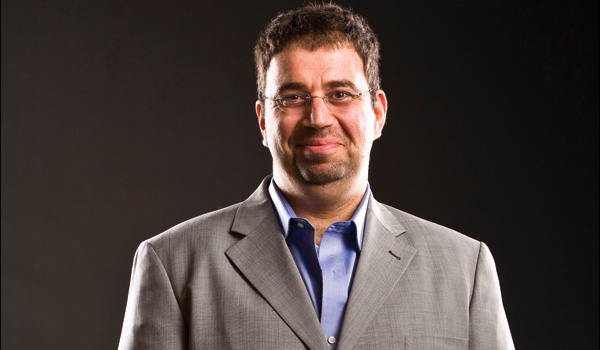Required reading and watching for my first year macro class.
“Why Nations Fail” by Daron Acemoglu and James Robinson

“Why coal, coasts, and culture matter” by Robert Allen, Jeffrey Sachs and Deirdre McCloskey.
Nobel Prize in Economics: an unstable match


Among Shapley’s incredible contributions to theoretical economics, the matching algorithm he developed with David Gale in 1962 would appear relatively insignificant. He developed the Shapley value (a “fair” way of dividing surplus in cooperative games), he characterised the core (a set of outcomes that cannot be improved on by a group of players) in a large class of (“convex”) games, and, more recently developed “potential games”, which find applications in many areas, including engineering.
But thanks to Al Roth (and others, including Vince Crawford), it is precisely Shapley’s algorithm that changed the way we think about markets. What “market designers” realised is that a stability and truth-telling in a market can be just as important efficiency (and that it’s not possible to achieve all three!) in applications. Roth’s work turned Shapley’s marriage market from an intellectual curiosity to a cornerstone of economic theory and practice. He also made it cool.
“Everything is Obvious* *Once You Know the Answer” by Duncan Watts

This book put my faith in social science back. Nothing about human interactions is obvious and social dynamics can be harder to explain than the Big Bang. But it’s an exciting time to give it a shot.
“This Time is Different” by Carmen M. Reinhart and Kenneth S. Rogoff
The thesis of the book is the opposite of what the title suggests, which is probably why this book is really worth reading. The data set provided on the book website is incredible.

Public responsibilities of an economist
“I would sum up the public responsibilities of the economist as follows:
– be brave about your conclusions when they are firmly based on empirical research;
– be modest about your conclusions otherwise, and own up to the limits of our knowledge and the nature of uncertainty;
– do not hesitate to engage in the discussion of controversial subjects, especially if there are myths to be punctured, or if others are engaging in the abuse of evidence to support their prior views;
– but if you are arguing on the basis of your political views rather than empirical research, or taking a view that supports a particular company or interest that has been funding your research, you have a duty to say so;
– above all, communicate better with non-economists and the general public, because good economic policies will not be implemented if they do not have popular legitimacy, and the public understanding of economics is low.
I end up with the sense that in what we collectively say about public policy, economists sound too certain where we ought to be humble about how little we know, and too hesitant where we ought to have more confidence. In both cases, we have been doing no service to economics. The imperative driving these behaviours is the wish to tell others engaged in policy-making what they want to hear. But if you want to be liked, you probably shouldn’t become an economist. ” — Diane Coyle, Tanner Lectures on Human Values, 2012.
Finally, Keynes’ magnificent vision of an economist has been clearly explained.
Robert Solow’s wit
“The truth is, I fear, that the [economic] profession’s disdain for the fix-wage assumption is much less respectable in origin. We have a sort of prior disposition to think that prices equate supply and demand. To say that a price does not do so under ordinary circumstances is seen as too crude, like eating peas with a knife. The accepted putdown is that the assumption of wage-rigidity is ad hoc. Perhaps it is, but if the hoc it is ad is the economy we live in, then there must be worse sins. In that kind of world, the assumption of flexible market-clearing does not even have the merit of being ad hoc. If the function of macroeconomic theory is to train our intuitions, [John Hicks’] path seems like the right one. It will certainly not do for the intuition to react like a society dowager: if that is the sort of economy we have, let us not invite it to tea.” (pp. 17-18)
Solow, R. (1984), “Mr Hicks and The Classics”, Oxford Economic Papers, Vol. 36., Supplement, pp. 13-25.
Do defaults save Labour?
I was surprised (and, at first, impressed) by Ed Miliband’s proposal on the Andrew Marr Show to limit individual donations to political parties at £5,000. He also suggested that the cap should apply to trade union funding of Labour.
Currently, trade union members can also opt out of the £3 annual contribution to the Labour party. When Andrew Marr asked whether Miliband would support changing this to an “opt-in” system (whereby the default option for trade union members would be to give nothing), Miliband insisted that this was not important and focussed his answer on the issue of transparency instead.
But the default option is not a trivial matter. In a famous article in Science, called “Do Defaults Save Lives?”, two decision scientists Eric J. Johnson and Daniel Goldstein looked at how willing Europeans are to become organ donors after death. They showed that in countries where opting out of organ donation was the default option, consent rates were significantly higher than in the countries where opting in was the default. The lowest consent rate in an opting-out country was 85.9% (Sweden) and the highest consent rate in an opting-in country was 27.5% (Netherlands). In the UK, I am one of the 17.17% who opt into organ donation.
Miliband is playing clever politics by undermining the importance of default options because he probably knows that an opt-in system would decimate individual donations by trade union members to his party. Behavioural economics makes politics a lot more interesting.
“The Coming Prosperity” by Philip E. Auerswald

A rather optimistic conclusion from a myriad of entertaining anecdotes.
“Auctions: Theory and Practice” by Paul Klemperer

What a nice gift.
21 books about the financial crisis
If you cannot force yourself to read 21 mutually inconsistent accounts of the financial crisis, Andrew W. Lo of MIT Sloan has summarised them here for an upcoming Journal of Economic Literature article.
Economics in the government has gone behavioural
Economics in the government has gone behavioural
The nudge unit report highlights that even though the gains are not big, they are almost free, which makes them pretty good value for money.

Daron Acemoglu on the importance of economic growth
Daron Acemoglu on the importance of economic growth
I often wish that Acemoglu, who one of the most talented living economists, participated more in public policy debates.

My first serious seminar
I’m presenting my first theory paper called “Many-to-many matching with complementarities and contracts” at a Discussion Group on Learning, Games and Networks. It will take place on Tuesday January 31th (week 3) at 4.45pm in the Conference Room L5 at Nuffield College. All welcome, especially my fellow economists.
You will be able to find an abstract and the seminar slides on my research page shortly.
Deirdre McCloskey
She is probably the world’s greatest living free-market intellectual (or in her words “a postmodern free-market quantitative rhetorical Episcopalian feminist Aristotelian woman who was once a man”). I gave her a book of poems by Bernard O’Donoghue, who teaches Middle English at Wadham. She immediately recited:
Whan that Aprill, with his shoures soote
The droghte of March hath perced to the roote
And bathed every veyne in swich licour,
Of which vertu engendred is the flour;
Whan Zephirus eek with his sweete breeth
Inspired hath in every holt and heeth
The tendre croppes, and the yonge sonne
Hath in the Ram his halfe cours yronne,
And smale foweles maken melodye,
That slepen al the nyght with open eye-
(So priketh hem Nature in hir corages);
Thanne longen folk to goon on pilgrimages
And palmeres for to seken straunge strondes
To ferne halwes, kowthe in sondry londes;
And specially from every shires ende
Of Engelond, to Caunterbury they wende,
The hooly blisful martir for to seke
That hem hath holpen, whan that they were seeke…
